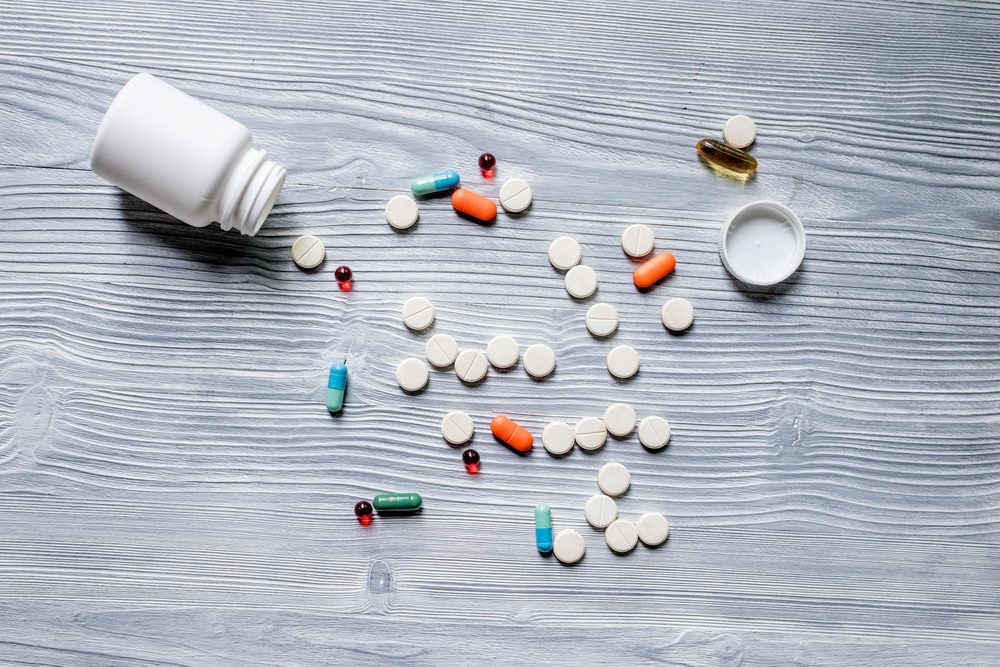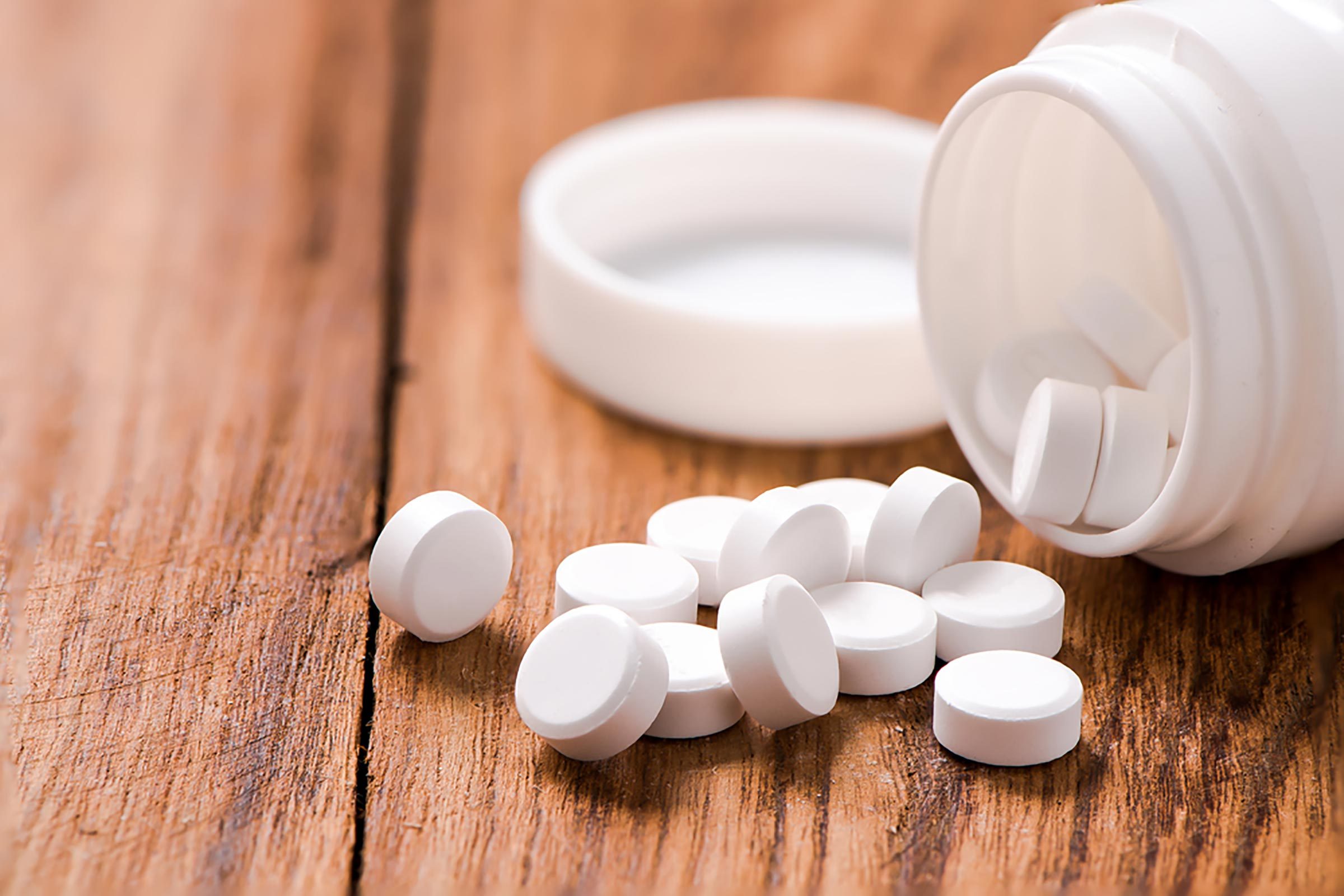
Taking an OTC remedy without reading the label
When it comes to over-the-counter drugs, many people have a blasé attitude, thinking, “They can’t really hurt me, right?” Wrong. Plenty of people end up with serious health problems from accidentally taking too much of an over-the-counter drug (such as a painkiller), overusing drugs such as laxatives or acid blockers, or taking something that interferes with another medication they’re on. No matter how innocuous a drug may seem, it’s always smart to read the label. It might surprise you. For instance, these are the OTC medications you’re using all wrong.

Taking sedatives if you have heartburn
People who took prescription drugs called benzodiazepines (Valium, Xanax, Halcion) to fall asleep were 50 percent more likely to have heartburn at night than those who didn’t in one large survey. Other research has shown that these prescription anti-anxiety drugs loosen up the lower esophageal sphincter, the ring of muscle that keeps stomach acid where it belongs.

Taking an antidiarrheal if you have a fever
Never treat yourself at home with a diarrhea remedy if you also have a fever or if there’s blood or mucus in your bowel movements. These are signs of an infection and warrant a call to your doctor. Learn about the other medication combinations you should never mix.

Taking a daily aspirin without asking your doctor
Some people shouldn’t take aspirin every day, especially since it can cause stomach bleeding. Doctors usually recommend it only for people who have an increased risk of heart attack and stroke. Women may not benefit as much from aspirin therapy as men. And some people appear to be resistant to aspirin’s anti-clotting effects. (Tests are available to check for aspirin resistance, though some doctors question their accuracy).

Quitting an anti-anxiety med cold turkey
If you’ve been taking an anti-anxiety medicine for a long time, do not quit abruptly. Talk to your doctor about how to gradually taper the dose. Otherwise, you could experience very serious complications such as seizures. Learn how to tell if your medications are making you sick.

Using old antibiotics for a new infection
First, you should have finished the entire prescription the first time around. Second, many antibiotics are specific to the type of infection you have. Taking the wrong antibiotic might not work and can lead to antibiotic-resistant bacteria, making treatment for that type of infection more difficult the next time.

Taking an antipsychotic without asking why you need it
Don’t accept a prescription for an antipsychotic drug (if you don’t have schizophrenia or other severe mental illnesses like psychosis) without asking your doctor, “Why this drug?” A study published in the Journal of Clinical Psychiatry and sponsored by the National Institutes of Health found that the majority of people prescribed these drugs didn’t have schizophrenia or other severe mental disorders for which the drugs are approved. Instead, they had conditions like depression, anxiety, or post-traumatic stress disorder that could be managed with safer, less-expensive medications. Although some antipsychotics are labeled for use in depression, they should be used as a last resort if typical antidepressants don’t work. These are the questions you should always, always ask your doctor before taking prescription meds.

Taking calcium on an empty stomach
The calcium in most supplements is bound to a form of salt called carbonate. Your stomach needs plenty of hydrochloric acid to break down calcium carbonate, so always take your supplement with a meal or snack. Food will cause your stomach to produce the acid.

Stopping your medication
Don’t skimp on eczema medicine. In one study, researchers found that about 65 percent of parents stopped applying prescription ointments to the skin of kids with eczema just 3 days after it was prescribed. To get the most out of your eczema treatment, use it exactly as your doctor prescribes. These are the signs you’re taking too many prescriptions.

Diagnosing your own yeast infection
Yes, the itching and discharge could be a yeast infection — but it might not be. In one study of 95 women who diagnosed themselves, testing showed that just a third actually had a yeast infection; the rest had various other vaginal infections. Pay a visit to your doctor for the correct diagnosis. Next, learn about the medication mistakes that could be making you sick.